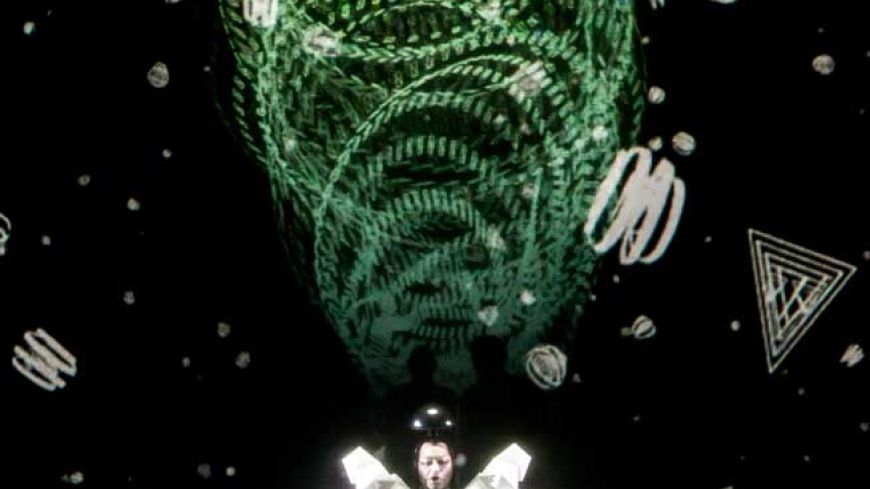
Having reviewed Blomdahl’s Aniara, the first space opera, at the 1959 Festival, I was apprehensive about the doomed spaceship Aniara being the location for Fidelio, a work proclaiming Freedom and Liberty and ending with love and fidelity triumphing over evil and vengeance.
Reviewing other science fiction opera premieres in the intervening years – such as Ligeti’s Grand Macabre, where the composer was booed off-stage at curtain-call, and Donnerstag aus Licht, where composer Stockhausen had be physically protected by admirers from angry local residents whose sleeping children had been frightened by raucous trumpet postludes blasting out from buildings opposite Covent Garden – did little to assuage apprehension.
Nor did pre-performance hype about the novel videos that framed the Opera de Lyons version of Beethoven’s much loved opera.
What was offered to this year’s Festival was a travesty.
The media installation and stage direction by conceptual artist Gary Hill isolated the performers from the audience by a full-width gauze that acted as a video screen. Principals whizzed noiselessly around the stage – and each other – on Segways and there was no physical contact. Even Florestan and Leonore sang their romantic duet from opposite sides of the stage.
Costumes were futuristic. One man in the audience muttered that they resembled children’s comic book characters and that the jailer Rocco looked like a prototype Batman. Prison Governor Don Pizarro was menacing in his large black floor-length costume – and highly embarrassed when the bottom half dropped off as he made his bow at the curtain-call.
At the start, narrator Clara Simpson set the scene with quotations from Aniara alongside the overture. During the performance various fragments of Harmison’s poem were voiced and large chunks of it filled the gauze screen at intervals.
The largely monochrome videos that flashed up and over the screen were a continual annoyance. Childish scrawls, spidery webs, simulated space shots, geometric forms, odd symbols and imaginary birdlike creatures were intrusive, irrelevant, unrelated to the plot or action and frequently blotted out the singers. In addition, in the first act they put heavy strain on the eyes.
The production was saved from complete disaster by the music and the singing. Kazushi Ono urged on the orchestra to a creditable unity. The prisoners chorus, in their stark white and black concentration camp uniforms, were in good voice.
The principals were not fazed by gimmickry or the obscuring gauze curtain but the honours must go to Erika Sunnegardh as Leonore and the outstanding Florestan of Nikolai Shukoff.
There was enthusiastic applause for the singers but prolonged boos greeted the design team when they joined the cast for the final curtain call.
It is a shame that Gary Hill’s first attempt at staging an opera should drag down a cast who gave a four-star performance.
Run: 10 & 12 August

